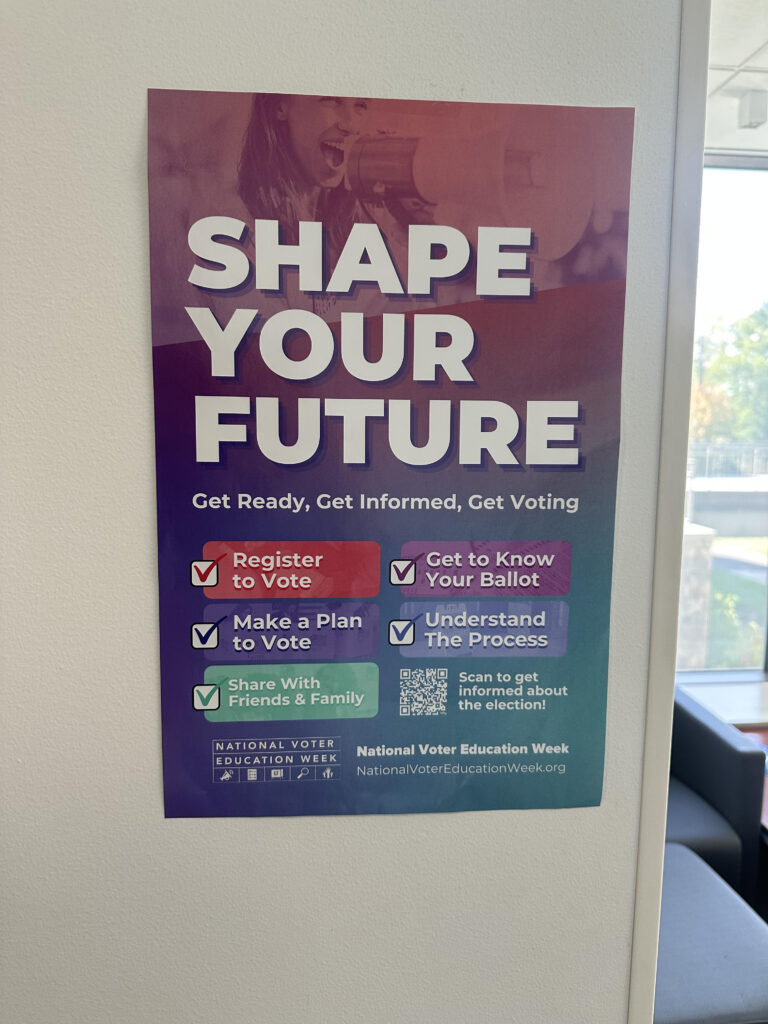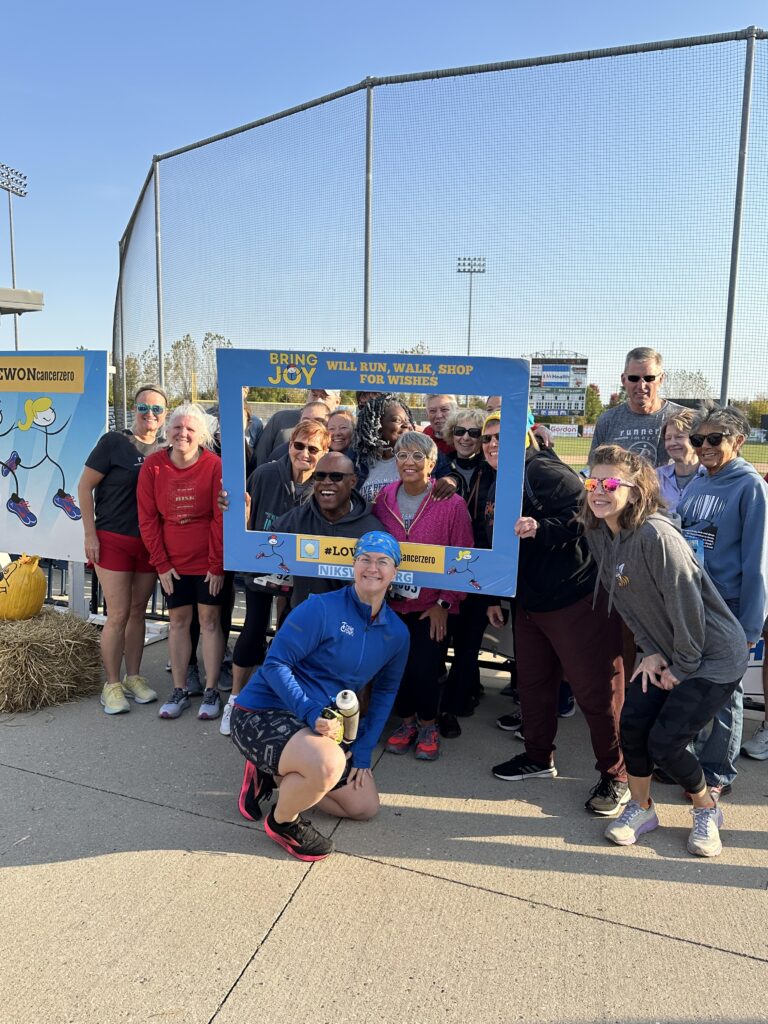
(Credit-Photo by: Brea Walters/The Valley Forge)
When you walk into Jessie Moran’s classroom, you’re met with the comforting smell of apple pie and a warm smile from the white-haired woman.
Entering her room, students feel comfortable. The lights are dimmed, and the corkboards are covered in purple paper with fairy lights and various pictures and paintings of Maleficent done by her children. She makes it known that this is a safe place.
Moran teaches sophomores and juniors English at Auburn High School. She has taught at Auburn for the last four years and has influenced many students at Auburn by using real-world issues to teach her lessons.
Moran loves all things spooky and witchy. At first glance, you may not think she’s a teacher. Her stark white hair, caused by her albinism and tattoos that litter her body, differentiates her from the average look of most teachers.
Moran has a creative and fun style of teaching. In her lessons, she reads stories and shows various videos that correlate to the stories. She introduced the dystopia topic by playing a joke on the kids. She told the kids that the faculty of Auburn High School would have stricter phone rules and start monitoring them heavily. She showed the worst-case scenario of a dystopian-like school and made the kids panic before retracting the statement. She also used Jim Jones’s Jonestown as a prime example of a dystopia.
Moran is well-loved by her students for how she teaches; however, she faces particular challenges other teachers don’t.
“Because I’m visually impaired, I can’t read the small print. I have to do some workarounds. So, I have to usually use my phone to read on their Chromebooks. If they go, ‘Hey, can you read this for me to tell me if this looks good and sounds good?’ I always make sure there is an audiobook to listen to in class, and I try to find a way to do it for them,” Moran said. I try to find a way to just make everything accessible no matter what your learning style, your vision, or where you are.”

(Credit-Photo by: Brea Walters/The Valley Forge)
Moran has faced many struggles with her blindness, but she never let those challenges get her down. She wants students to be proud of who they are and what they do.
“I let them know it’s okay to be themselves,” Moran said. “That’s one way I influence them. I let them know it’s okay to be silly. It’s okay to make mistakes ‘cause I definitely make mistakes in the classroom. I let them know that even as a teacher, I’m not all-knowing, all-powerful, all everything. I think that’s a good way to influence people, to let them know, ‘Hey, I’m not perfect. We all make mistakes.’”
Moran may struggle with her sight, but her PowerPoints and graphics are always full of pictures and color. With such little vision, she has to rely on her other senses, like sound and touch, while teaching.
Around Auburn, Moran is a mother figure to many students because of her attitude. Students allow themselves to act true to who they are around her. Arwen Whorton, who was in her class during the 2020-2021 school year, still occasionally hangs out in her classroom.
“My first time meeting Ms. Moran was actually over Zoom. At first, I didn’t like her because of her background. I thought she was going to be a mean teacher.” Arwen said.
Arwen soon realized that wasn’t the case.
“When I walked into her classroom on the first in-person day, she was very fun. She was playing some sort of fun music and having a good time,” Arwen said.
Moran is known around Auburn for her unique assignments. She teaches a lot of literature to film adaptations. Instead of books, the students may read and write about a podcast. Instead of essays, they may make PowerPoints.
“Her assignments are understandable and fun. They are not by the book,” Arwen said.
Though Moran is dedicated to her job, she is also a mom of four boys and one girl. Alia Moran is her only daughter. Alia helped her Mom with many things at home before she left for college this year.
”I support my mom by helping her walk in the correct way with her hand in my arm and leading her when she needs it,” Alia said. “She taught me the correct way to lead a blind person when I was very young, so I know immediately when she needs help and what to do. I also stay at her pace. If I know the terrain may be rough, if I notice things she might not have, I let her know. My mom likes to call me ‘her eyes’ because I am so observant of her needs due to her disability.”
Alia is inspired by her Mom, just like many students at Auburn. Moran let her kids know that it is okay to be themselves, just like the students at Auburn.
“She inspires me to keep working always and never forgets about my dreams,” Alia said. “She put her career on a halt to take care of me and my brother but went back to school to finish her licensing and her master’s to achieve what she always wanted to. She inspires me to not just settle for one dream but to work hard to have everything I want.”
Moran accepts challenges, never letting her disability get in her way, even in her home life while raising her children.
Moran influences students in their school lives and personal lives with her story and unfamiliar way of teaching. She is a confidant to them when they need it and never wants a class to get boring with uncreative assignments.
“She encourages me to work harder than I would rather work,” Arwen said. “For personal life, hearing about her life in the past and her albinism, and how that affects her, it just kinda inspires me to work through hard things.”
Moran wants to prepare students for college by not walking them through the class but using instruction to help them do it independently to thrive in life after high school.







